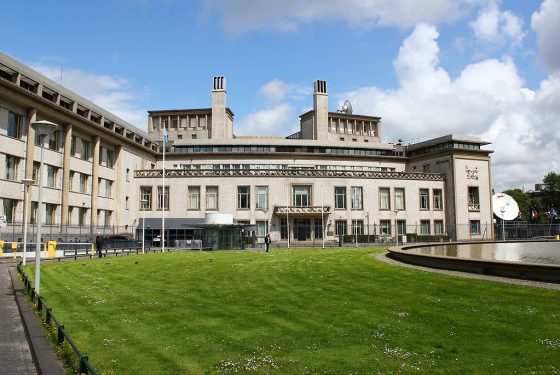Yugoslavia war tribunal in The Hague closes its doors after 24 years

The Yugoslavia war crimes tribunal in The Hague closes its doors on Thursday after 24 years of hearings.
In total, the tribunal has dealt with 161 complaints of war crimes, crimes against humanity and genocide committed by soldiers, governments and private citizens.
In the 24 years since it opened, the tribunal has handed down 90 rulings, found 19 people not guilty, heard from 4,650 witnesses and carried out hearings on 10,800 days. In total, 14 countries have been involved in the punishment of perpetrators and 13 have extradited suspects to be tried.
The tribunal was the first court to undertake the prosecution for the gravest international crimes since the post-World War II Nuremberg and Tokyo trials.
It was set up by the UN security council in 1993, just two years after the start of the Yugoslavia conflict. The first suspect, Bosnian Serb Dusko Tadic, appeared in the court in 1995 and was eventually sentenced to 20 years in jail.
The tribunal went on to put the former Yugoslav president Slobodan Milošević, the Bosnian Serb leader Radovan Karadžić and Gen Ratko Mladic in the dock. Its closing sessions were marred by the courtroom suicide of the Croatian commander Slobodan Praljak, who swallowed potassium cyanide after his appeal was rejected.
Legal landscape
‘Over the past two decades, [the tribunal] has irreversibly changed the landscape of international criminal and humanitarian law,’ the tribunal’s website says.
‘In 1993, I think, no one believed that we would have been able to bring justice to anyone […] We have proved exactly the opposite,’ ICTY president Carmel Agius told UN News.
The court has completed all judicial work, despite complex challenges, including the difficulty to bring witnesses from abroad, translation and interpretation issues, and a lack of cooperation from countries from which help was needed, he said.
Consensus
The ICTY’s legacy, international law professor Philippe Sands told the Guardian, paves the way for a broader international consensus on war crimes justice.
‘The breakup of Yugoslavia has been a catalyst with very significant consequences,’ he said. ‘The experience has been mixed. It hasn’t brought tranquility and reconciliation to the region but it has delivered … important judgments on individuals.’
The tribunal’s overall record, he said, ‘reflects the significant but limited function that international justice can play in resolving longstanding political differences. It’s one tool in an armoury.’
Thank you for donating to DutchNews.nl.
We could not provide the Dutch News service, and keep it free of charge, without the generous support of our readers. Your donations allow us to report on issues you tell us matter, and provide you with a summary of the most important Dutch news each day.
Make a donation